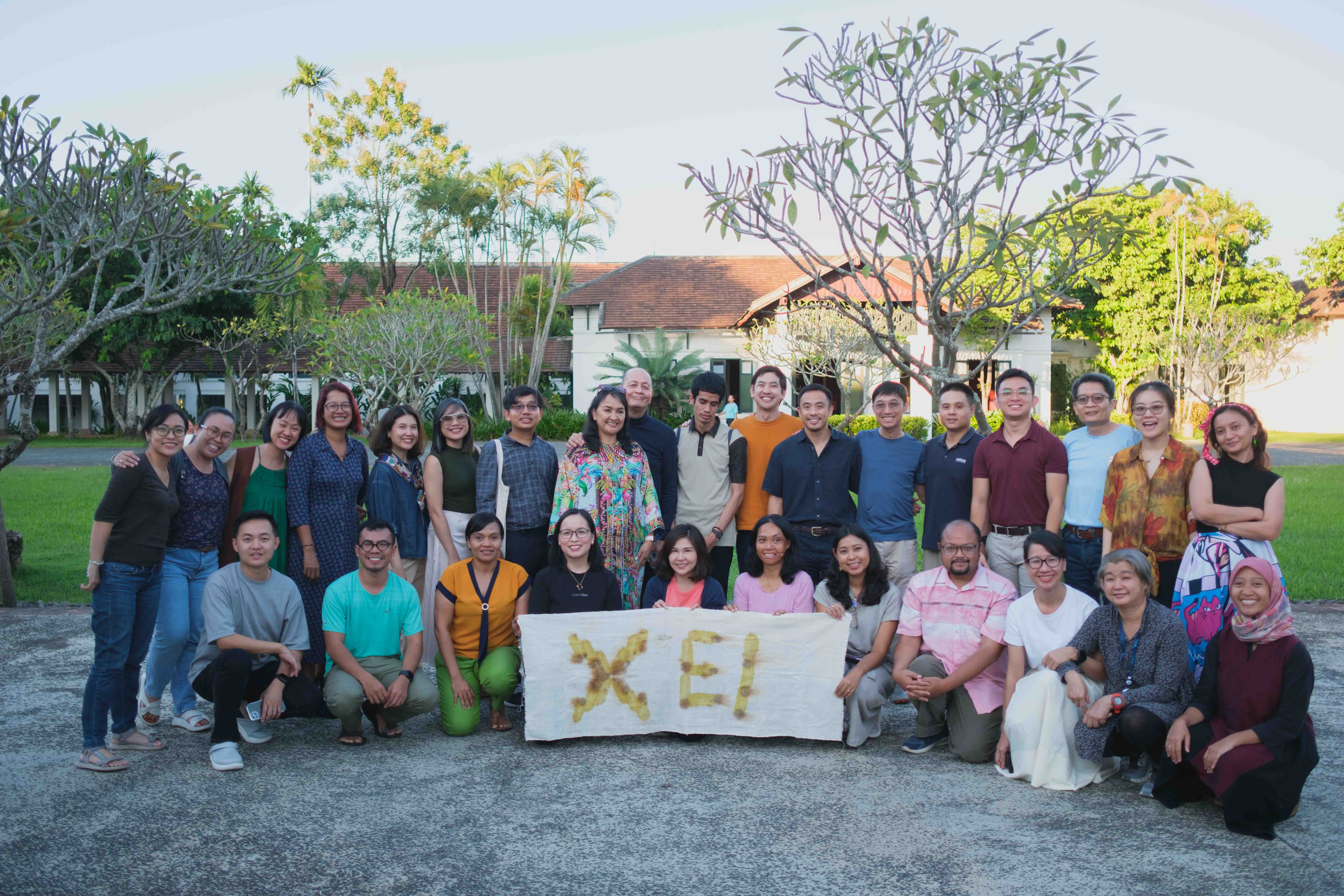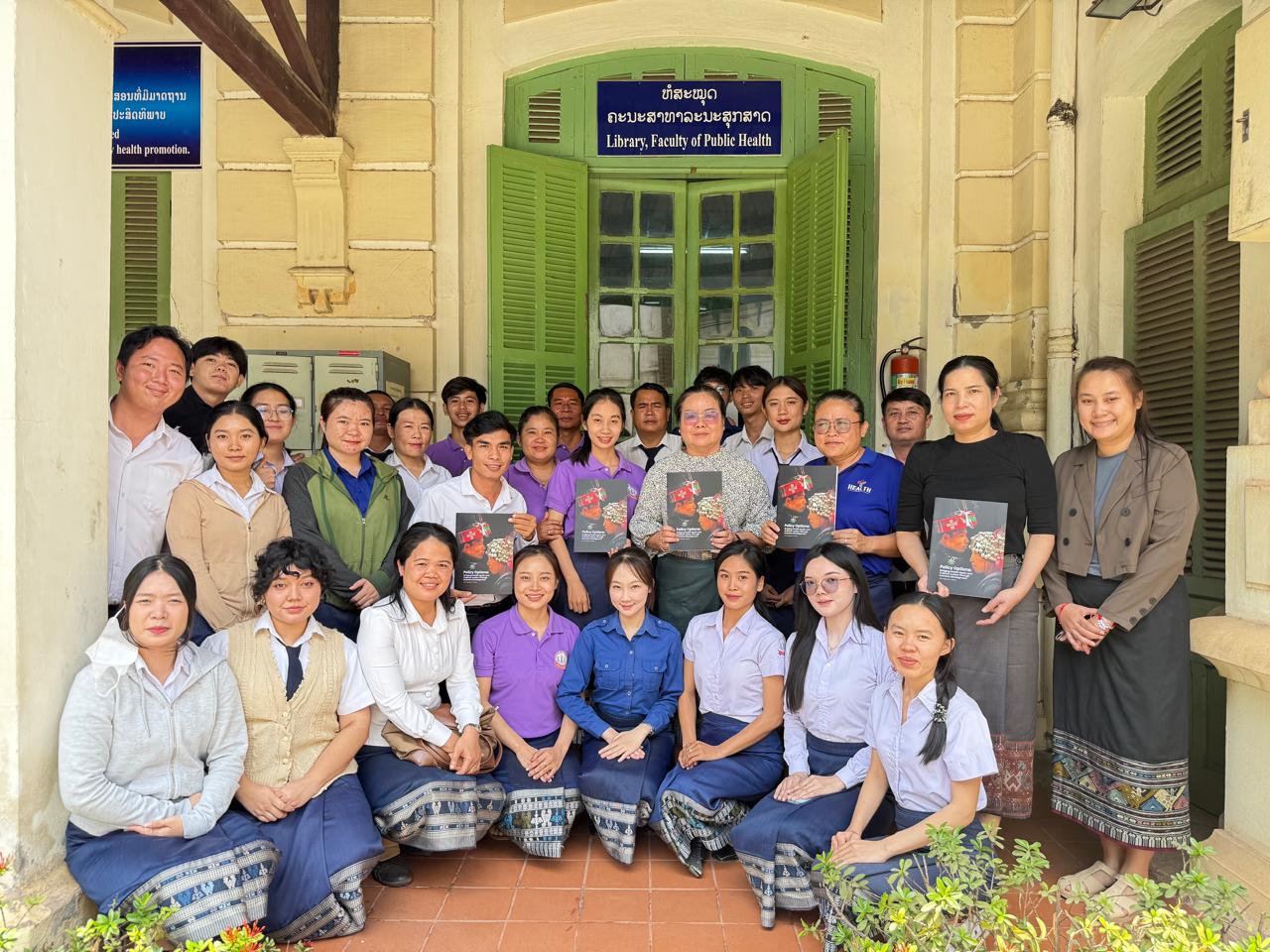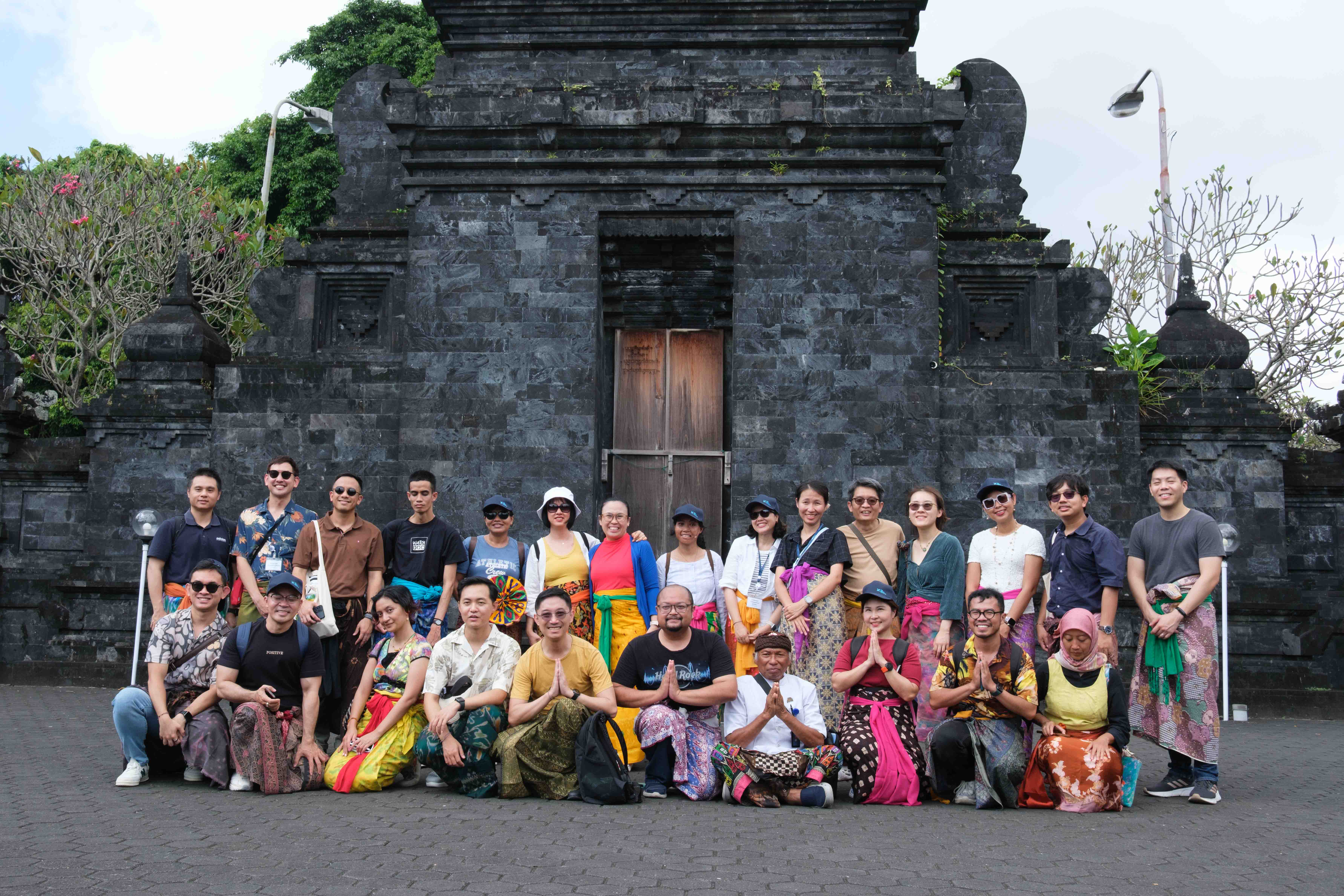From Stunting to Strength: How a Village United to Nourish Its Future
Project Type: Equity Initiative Second Year Project
Project Name: GRAMS (Gotong Royong Ayo Makan Sehat)
EI Fellows: Nur Fajrini Matjalina (2023, Brunei), Aghnia Dima Rochmawati (2023, Indonesia), Gigih Septianto (2023, Indonesia), Alberto Teodoro Malvar (2023, Philippines)
In a quiet corner of Indonesia, tucked away along the riverbanks of West Kalimantan, a powerful movement was quietly taking root. In the village of Nanga Dedai, where stunting among children — impaired growth and development marked by low height for age — had long cast a shadow over families’ hopes, a community decided it was time for change. And they decided to do it together.
The Gotong Royong Ayo Makan Sehat! (GRAMS) project began as a simple but bold idea: that the solution to childhood malnutrition could come not from outside experts, but from the villagers themselves. Led by the newly formed Nanga Sengkar Team — a passionate group of local leaders, health workers, youth, and educators — the community launched a grassroots campaign to transform child nutrition through locally-driven initiatives.
At the heart of the effort was a humble yet powerful tool: fish farming. By constructing community fish ponds, nurturing them, and distributing the harvest weekly to families with stunted children, the team brought a consistent, affordable source of protein into homes where it was desperately needed. Alongside this, they conducted monthly workshops- teaching everything from nutrition basics to project management — sowing not only seeds of health, but seeds of leadership.
One of the many lives touched by this effort was Dafa Hernandes, a bright-eyed toddler from the nearby hamlet of Landau Arai. At just one year and five months old, Dafa was struggling with poor growth. His mother, Mama Debora Sini, knew the dangers of stunting but felt helpless to change their circumstances — until GRAMS arrived.
With support from Nanga Sengkar Nutrition Team and WeCare.id, Mama Debora embaraced a new journey. She and her family received a steady supply of fish-based protein for three consecutive months, and she participated in hands-on fish farming training. Not only did Dafa’s nutrition improve, but Mama Debora also gained new skills — unlocking the potential for small-scale income generation through aquaculture.
The ripple effects were felt throughout the village. In just a few months, Nanga Dedai saw a remarkable 33.3% decrease in child stunting — from 15 children to just 10. But the numbers only tell part of the story.
Behind these results stood the fierce spirit of the Nanga Sengkar Team. They faced enormous hurdles: river contamination that killed the first batch of fish, seasonal floods that blocked access to the village, and even the collapse of external partnerships that once supported their work. Yet time and again, they adapted. When the river water turned deadly, they dug wells. When the roads washed away, they delivered aid by boat. When partnerships faltered, they built new bridges of trust with local authorities.
Their resilience was recognized not just by their fellow villagers, but also by the local government, who honored the GRAMS project with the Development Partner Award — a testament to the power of community-led solutions.
Even after the formal project concluded, the Nanga Sengkar Team refused to rest. They proposed new innovations like aquaponics to diversify local food sources and began experimenting with value-added products like fish crackers branded under their own community label, “Nutrisi Sengkar.” What started as a nutrition project had now sparked the beginnings of a local food economy — turning survival into sustainability.
Perhaps the most lasting impact of GRAMS is not just seen in the healthier children or the fuller dinner plates. It is in the confidence of mothers like Mama Debora, the leadership of the Nanga Sengkar Team, and the collective realization that true change happens when a community believes in its own power.
In Nanga Dedai village, the future looks a little brighter — not because help arrived from afar, but because neighbors, friends, and families came together to nourish not just their bodies, but their hope.
The story of GRAMS is a story of resilience, unity, and the unstoppable spirit of a community reclaiming its future — one fish, one child, and one dream at a time.
About These Stories
These stories were written by Equity Initiative Fellows about their Second Year Projects. Second Year Projects are collaborative efforts by Fellows to apply their leadership training toward real-world health equity issues. Fellows work across countries and disciplines to co-create and implement projects that embody the values of equity, community leadership, and regional solidarity. While the projects focused on implementing community-based solutions to health equity challenges, the stories were submitted to the Equity Initiative as a way to document and share their work.




